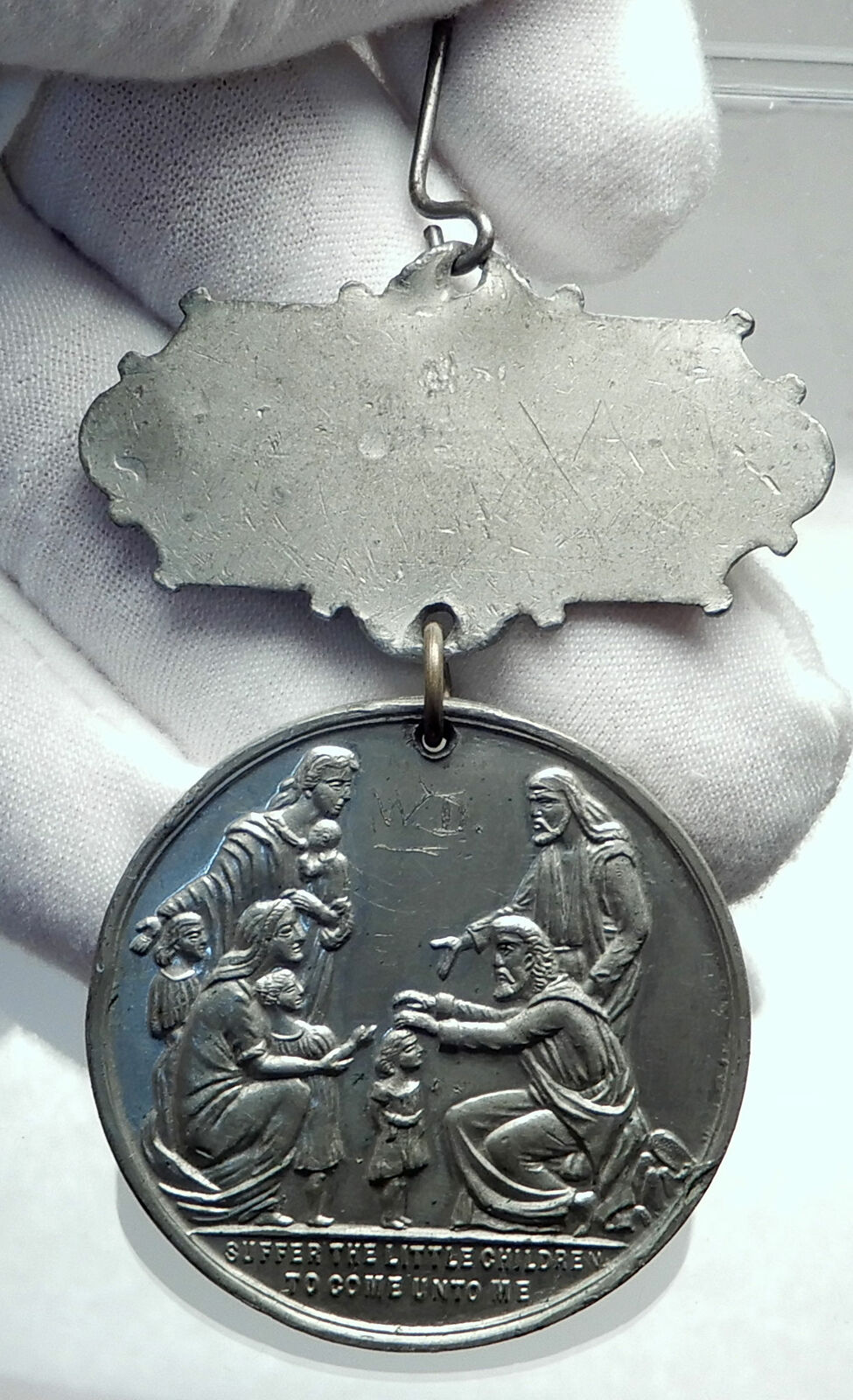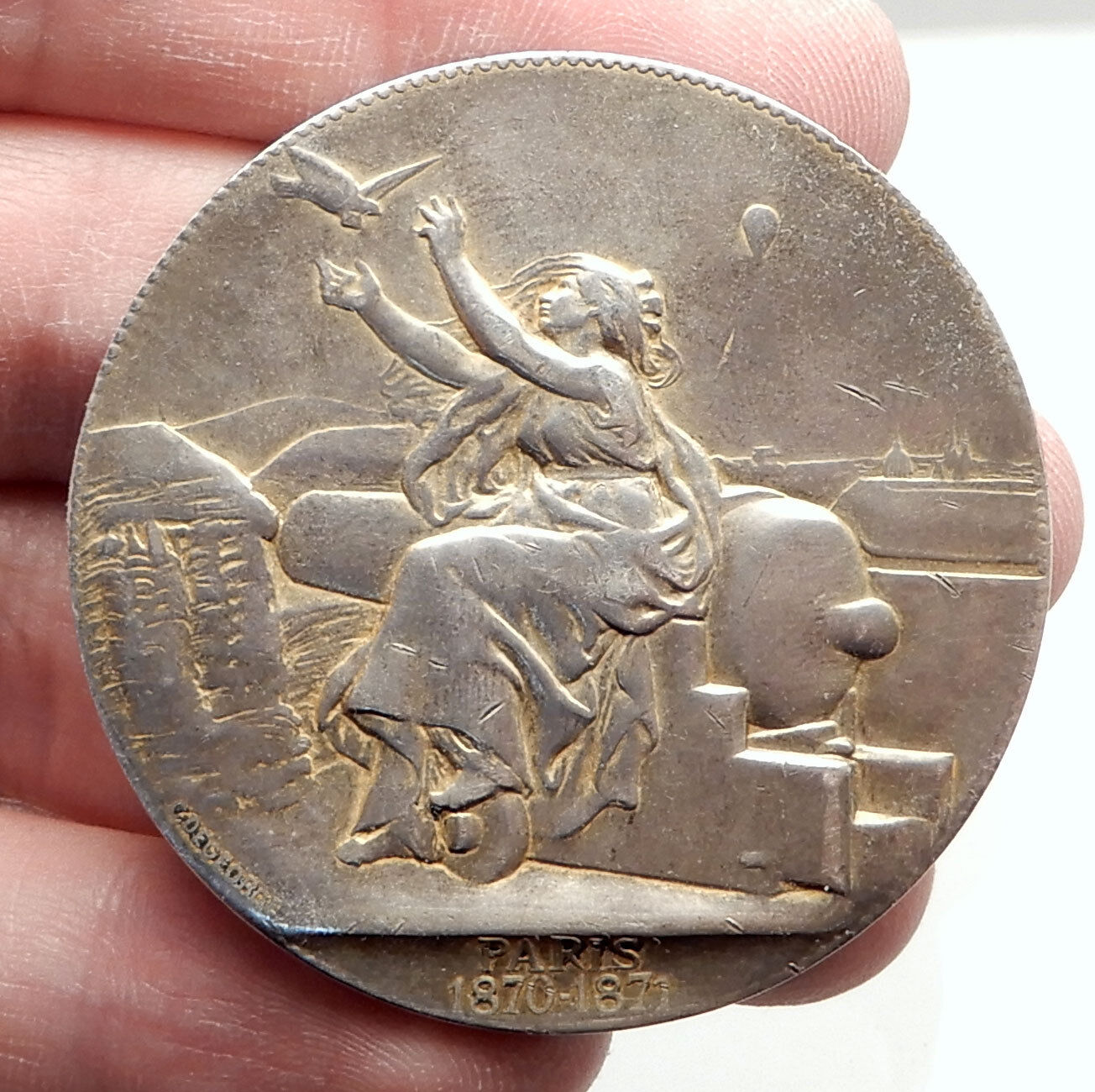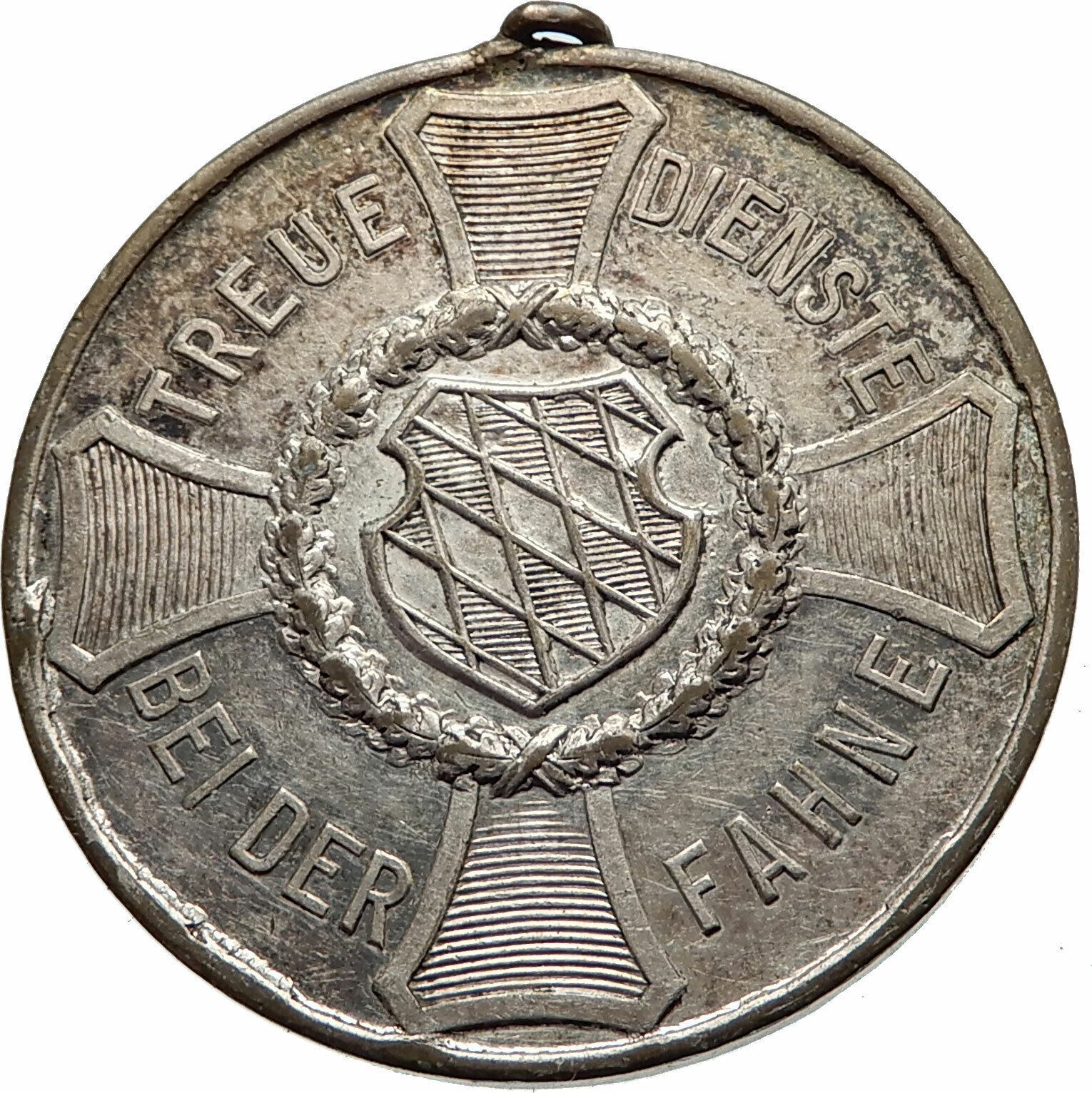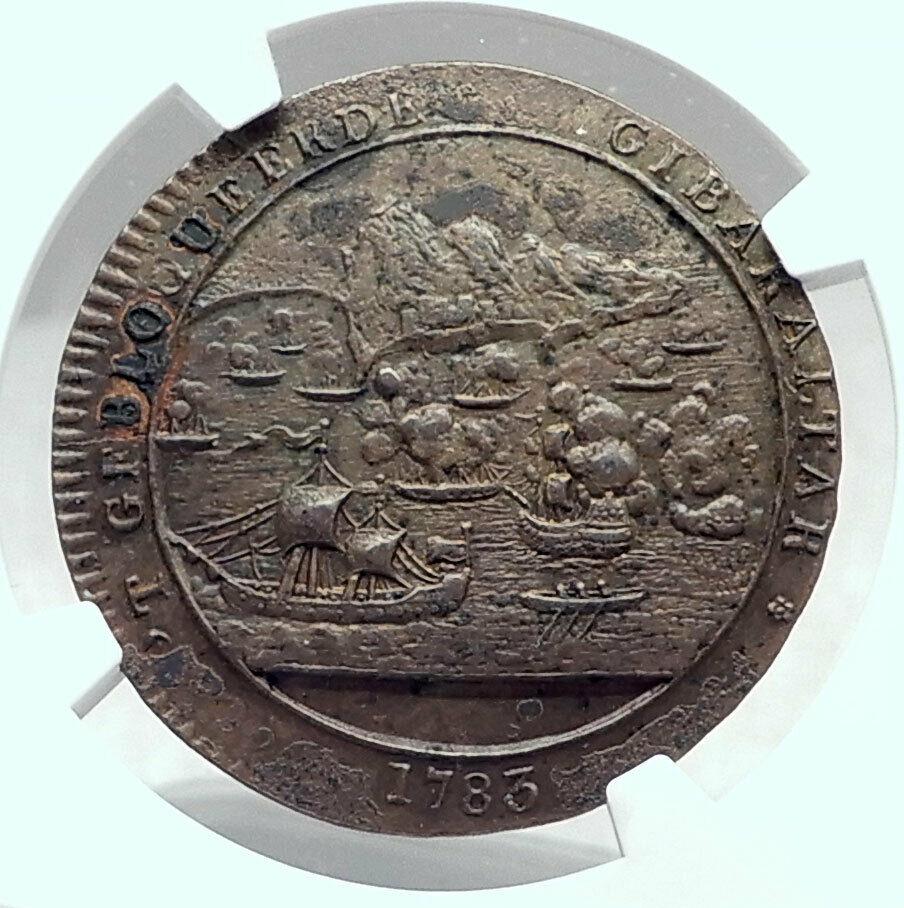|
Switzerland –
William Farel Medal
1875 Bronze Specimen Medal 45mm
Reference: Neuchatel Opitz-3527
Certification: PCGS SP65
811951.62/38598454
GUILLAUME FAREL REFORMATEUR * 1565 F. LANDRY, Prophet holding Bible
atop pedestal.
LA PAROLE DE DIEU ESTS VIVANTE ET EFFICACE ET PLUS PENETRANTE Q’UN
GLAIVE A DEUX TRANCHANTS. NEUCHATEL. 1875, Text in five lines, divider
below, text around bottom.
You are bidding on the exact item pictured, provided with a Certificate of Authenticity and Lifetime Guarantee of Authenticity.
 William Farel (1489 – 13 September 1565), Guilhem Farel or Guillaume Farel, was a French evangelist, Protestant reformer and a founder of the Reformed Church in the Principality of Neuchâtel, in the Republic of Geneva, and in Switzerland in the Canton of Bern and the (then occupied by Bern) Canton of Vaud. He is most often remembered for having persuaded John Calvin to remain in Geneva in 1536,and for persuading him to return there in 1541,after their expulsion in 1538. They influenced the government of Geneva to the point that it became the “Protestant Rome”, where Protestants took refuge and non-Protestants were driven out.Together with Calvin, Farel worked to train missionary preachers who spread the Protestant cause to other countries, and especially to France. William Farel (1489 – 13 September 1565), Guilhem Farel or Guillaume Farel, was a French evangelist, Protestant reformer and a founder of the Reformed Church in the Principality of Neuchâtel, in the Republic of Geneva, and in Switzerland in the Canton of Bern and the (then occupied by Bern) Canton of Vaud. He is most often remembered for having persuaded John Calvin to remain in Geneva in 1536,and for persuading him to return there in 1541,after their expulsion in 1538. They influenced the government of Geneva to the point that it became the “Protestant Rome”, where Protestants took refuge and non-Protestants were driven out.Together with Calvin, Farel worked to train missionary preachers who spread the Protestant cause to other countries, and especially to France.
 Farel was born in 1489 in Gap.He was a pupil of the pro-reform Catholic priesthood, at the University of Paris, in the earliest years of the Reformation. There he met the scholar Jacques Lefevre d’Etapleswho helped Farel obtain a professorship to teach grammar and philosophy at the Collège Cardinal Lemoine in Paris. With Lefevre he became a member of the Cercle de Meaux gathered together from 1519 by the reform-minded bishop of Meaux, Guillaume Briçonnet. Farel soon became regent of the college. By 1522 he was appointed a diocesan preacher by the Reformist bishop of Meaux, Guillaume Briçonnet. Farel now could invite a number of evangelical Humanists to work in his diocese to help implement his reform program within the Catholic Church. Farel was born in 1489 in Gap.He was a pupil of the pro-reform Catholic priesthood, at the University of Paris, in the earliest years of the Reformation. There he met the scholar Jacques Lefevre d’Etapleswho helped Farel obtain a professorship to teach grammar and philosophy at the Collège Cardinal Lemoine in Paris. With Lefevre he became a member of the Cercle de Meaux gathered together from 1519 by the reform-minded bishop of Meaux, Guillaume Briçonnet. Farel soon became regent of the college. By 1522 he was appointed a diocesan preacher by the Reformist bishop of Meaux, Guillaume Briçonnet. Farel now could invite a number of evangelical Humanists to work in his diocese to help implement his reform program within the Catholic Church.
 This group of Humanists also included Josse van Clichtove, Martial Mazurier, Gérard Roussel, and François Vatable. The members of the Meaux circle were of different talents but they generally emphasized the study of the Bible and a return to the theology of the early Church. While working with Lefevre in Meaux, Farel came under the influence of Lutheran ideas and became an avid promoter of them. After condemnation by the Sorbonne, Farel evangelized fervently in the Dauphiné. This group of Humanists also included Josse van Clichtove, Martial Mazurier, Gérard Roussel, and François Vatable. The members of the Meaux circle were of different talents but they generally emphasized the study of the Bible and a return to the theology of the early Church. While working with Lefevre in Meaux, Farel came under the influence of Lutheran ideas and became an avid promoter of them. After condemnation by the Sorbonne, Farel evangelized fervently in the Dauphiné.
Farel was forced to flee to Switzerland because of controversy that was aroused by his writings against the use of images in Christian worship. He spent time at Zurich with Huldrych Zwingli and at Strasbourg, with Martin Bucer. He convinced Neuchâtel to join the Reform in 1530.
Farel established himself in Geneva in 1532, where he remained as minister, drawing Calvin to the city, but breaking with him over the Eucharist. He, along with Calvin, was banished from Geneva in 1538, in part for his rigorous positions, and retired to Neuchâtel, where he spent the rest of his life. In 1558, when he was sixty-nine, Farel married Marie Thorel, who was a teenager. Scott Manetsch notes that Calvin was “flabbergasted and irate” at the marriage, “fearing that his friend’s scandalous action would inflict irreparable damage on the cause of the Reformation throughout Europe.”
Although Farel was a friend of Calvin’s,he was a promoter of Lutheran ideas in his youth.
.svg/85px-Coat_of_Arms_of_Switzerland_(Pantone).svg.png) 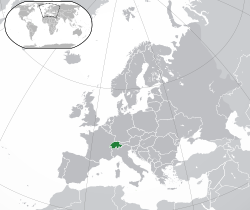 Switzerland, officially the Swiss Confederation (Latin: Confoederatio Helvetica, hence its abbreviation CH), is a federal parliamentary republic consisting of 26 cantons, with Bern as the seat of the federal authorities, the so-called Bundesstadt (“federal city”). The country is situated in Western and Central Europe, where it is bordered by Italy to the south, France to the west, Germany to the north, and Austria and Liechtenstein to the east. Switzerland is a landlocked country geographically divided between the Alps, the Swiss Plateau and the Jura, spanning an area of 41,285 km2 (15,940 sq mi). While the Alps occupy the greater part of the territory, the Swiss population of approximately 8 million people is concentrated mostly on the Plateau, where the largest cities are to be found. Among them are the two global cities and economic centres of Zürich and Geneva. Switzerland, officially the Swiss Confederation (Latin: Confoederatio Helvetica, hence its abbreviation CH), is a federal parliamentary republic consisting of 26 cantons, with Bern as the seat of the federal authorities, the so-called Bundesstadt (“federal city”). The country is situated in Western and Central Europe, where it is bordered by Italy to the south, France to the west, Germany to the north, and Austria and Liechtenstein to the east. Switzerland is a landlocked country geographically divided between the Alps, the Swiss Plateau and the Jura, spanning an area of 41,285 km2 (15,940 sq mi). While the Alps occupy the greater part of the territory, the Swiss population of approximately 8 million people is concentrated mostly on the Plateau, where the largest cities are to be found. Among them are the two global cities and economic centres of Zürich and Geneva.
The establishment of the Swiss Confederation is traditionally dated to 1 August 1291, which is celebrated annually as Swiss National Day. It has a long history of armed neutrality-it has not been in a state of war internationally since 1815-and did not join the United Nations until 2002. It pursues, however, an active foreign policy and is frequently involved in peace-building processes around the world. Switzerland is also the birthplace of the Red Cross and home to numerous international organizations, including the second largest UN office. On the European level, it is a founding member of the European Free Trade Association and is part of the Schengen Area – although it is notably not a member of the European Union, nor the European Economic Area. Switzerland comprises four main linguistic and cultural regions: German, French, Italian and the Romansh-speaking valleys. Therefore, the Swiss, although predominantly German-speaking, do not form a nation in the sense of a common ethnic or linguistic identity; rather, the strong sense of identity and community is founded on a common historical background, shared values such as federalism and direct democracy, and Alpine symbolism.
Switzerland has the highest nominal wealth per adult (financial and non-financial assets) in the world according to Credit Suisse and eighth-highest per capita gross domestic product on the IMF list. However, Switzerland is also the most expensive country in the world to live in, as measured by the price level index.
Swiss citizens have the second-highest life expectancy in the world on the UN DESA list. Switzerland is tied with the Netherlands for the top rank on the Bribe Payers Index indicating very low levels of business corruption. Moreover, for the last five years the country has been ranked first in economic and tourist competitiveness according to the Global Competitiveness Report and the Travel and Tourism Competitiveness Report respectively, both developed by the World Economic Forum. Zürich and Geneva have each been ranked among the top cities with the highest quality of life in the world, with the former coming second globally according to Mercer. However, Mercer also rates those two cities as the fifth- and sixth- most expensive cities in the world to live in.
|









 William Farel (1489 – 13 September 1565), Guilhem Farel or Guillaume Farel, was a French evangelist, Protestant reformer and a founder of the Reformed Church in the Principality of Neuchâtel, in the Republic of Geneva, and in Switzerland in the Canton of Bern and the (then occupied by Bern) Canton of Vaud. He is most often remembered for having persuaded John Calvin to remain in Geneva in 1536,and for persuading him to return there in 1541,after their expulsion in 1538. They influenced the government of Geneva to the point that it became the “Protestant Rome”, where Protestants took refuge and non-Protestants were driven out.Together with Calvin, Farel worked to train missionary preachers who spread the Protestant cause to other countries, and especially to France.
William Farel (1489 – 13 September 1565), Guilhem Farel or Guillaume Farel, was a French evangelist, Protestant reformer and a founder of the Reformed Church in the Principality of Neuchâtel, in the Republic of Geneva, and in Switzerland in the Canton of Bern and the (then occupied by Bern) Canton of Vaud. He is most often remembered for having persuaded John Calvin to remain in Geneva in 1536,and for persuading him to return there in 1541,after their expulsion in 1538. They influenced the government of Geneva to the point that it became the “Protestant Rome”, where Protestants took refuge and non-Protestants were driven out.Together with Calvin, Farel worked to train missionary preachers who spread the Protestant cause to other countries, and especially to France. Farel was born in 1489 in Gap.He was a pupil of the pro-reform Catholic priesthood, at the University of Paris, in the earliest years of the Reformation. There he met the scholar Jacques Lefevre d’Etapleswho helped Farel obtain a professorship to teach grammar and philosophy at the Collège Cardinal Lemoine in Paris. With Lefevre he became a member of the Cercle de Meaux gathered together from 1519 by the reform-minded bishop of Meaux, Guillaume Briçonnet. Farel soon became regent of the college. By 1522 he was appointed a diocesan preacher by the Reformist bishop of Meaux, Guillaume Briçonnet. Farel now could invite a number of evangelical Humanists to work in his diocese to help implement his reform program within the Catholic Church.
Farel was born in 1489 in Gap.He was a pupil of the pro-reform Catholic priesthood, at the University of Paris, in the earliest years of the Reformation. There he met the scholar Jacques Lefevre d’Etapleswho helped Farel obtain a professorship to teach grammar and philosophy at the Collège Cardinal Lemoine in Paris. With Lefevre he became a member of the Cercle de Meaux gathered together from 1519 by the reform-minded bishop of Meaux, Guillaume Briçonnet. Farel soon became regent of the college. By 1522 he was appointed a diocesan preacher by the Reformist bishop of Meaux, Guillaume Briçonnet. Farel now could invite a number of evangelical Humanists to work in his diocese to help implement his reform program within the Catholic Church. This group of Humanists also included Josse van Clichtove, Martial Mazurier, Gérard Roussel, and François Vatable. The members of the Meaux circle were of different talents but they generally emphasized the study of the Bible and a return to the theology of the early Church. While working with Lefevre in Meaux, Farel came under the influence of Lutheran ideas and became an avid promoter of them. After condemnation by the Sorbonne, Farel evangelized fervently in the Dauphiné.
This group of Humanists also included Josse van Clichtove, Martial Mazurier, Gérard Roussel, and François Vatable. The members of the Meaux circle were of different talents but they generally emphasized the study of the Bible and a return to the theology of the early Church. While working with Lefevre in Meaux, Farel came under the influence of Lutheran ideas and became an avid promoter of them. After condemnation by the Sorbonne, Farel evangelized fervently in the Dauphiné..svg/85px-Coat_of_Arms_of_Switzerland_(Pantone).svg.png)
 Switzerland, officially the Swiss Confederation (Latin: Confoederatio Helvetica, hence its abbreviation CH), is a federal parliamentary republic consisting of 26 cantons, with Bern as the seat of the federal authorities, the so-called Bundesstadt (“federal city”). The country is situated in Western and Central Europe, where it is bordered by Italy to the south, France to the west, Germany to the north, and Austria and Liechtenstein to the east. Switzerland is a landlocked country geographically divided between the Alps, the Swiss Plateau and the Jura, spanning an area of 41,285 km2 (15,940 sq mi). While the Alps occupy the greater part of the territory, the Swiss population of approximately 8 million people is concentrated mostly on the Plateau, where the largest cities are to be found. Among them are the two global cities and economic centres of Zürich and Geneva.
Switzerland, officially the Swiss Confederation (Latin: Confoederatio Helvetica, hence its abbreviation CH), is a federal parliamentary republic consisting of 26 cantons, with Bern as the seat of the federal authorities, the so-called Bundesstadt (“federal city”). The country is situated in Western and Central Europe, where it is bordered by Italy to the south, France to the west, Germany to the north, and Austria and Liechtenstein to the east. Switzerland is a landlocked country geographically divided between the Alps, the Swiss Plateau and the Jura, spanning an area of 41,285 km2 (15,940 sq mi). While the Alps occupy the greater part of the territory, the Swiss population of approximately 8 million people is concentrated mostly on the Plateau, where the largest cities are to be found. Among them are the two global cities and economic centres of Zürich and Geneva.

